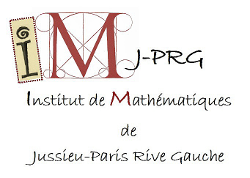| Résume | When a subset of a field is existentially definable in the language of rings, one can ask what the smallest number of quantifiers is needed for an existential formula defining this set. Especially in a number-theoretic context, this question is motivated by links to Hilbert's 10th Problem and other decidability problems. However, this question also turns out to be quite hard in general, since answering it requires a thorough understanding of the arithmetic of the field in question.
On the other hand, if one asks how many quantifiers are needed to existentially define a definable class of subsets (e.g. the set of sums of 4 squares) uniformly across fields, then the problem gets a much more geometric flavour, can be tackled via a model-theoretic approach, and is connected with the notions of essential and canonical dimension, as introduced by Merkurjev. In this talk, I will discuss some techniques, results, and open questions.
Based on joint work with Arno Fehm and Philip Dittmann. Preprint available as arXiv:2102.06941. |

